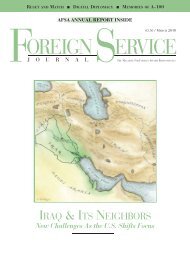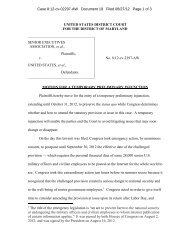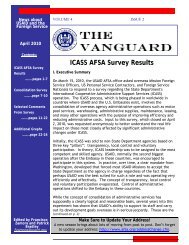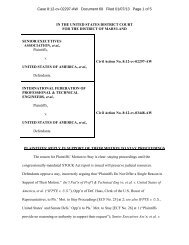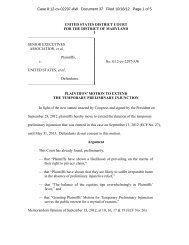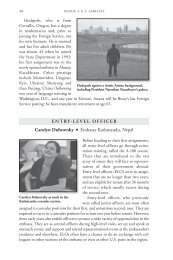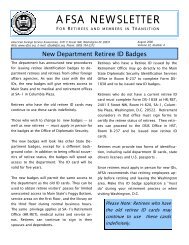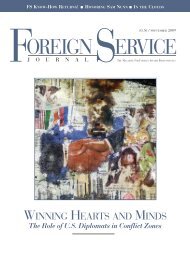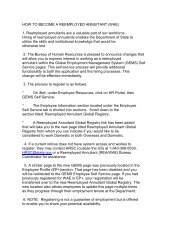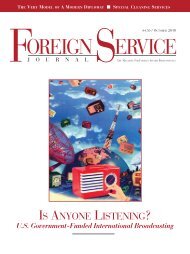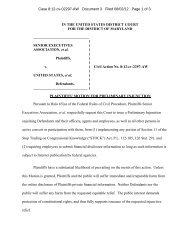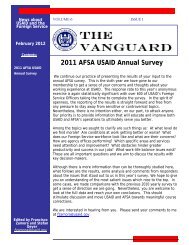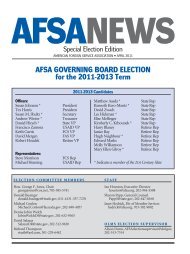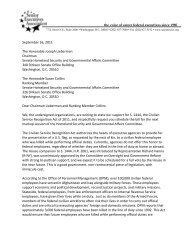F OCUS - American Foreign Service Association
F OCUS - American Foreign Service Association
F OCUS - American Foreign Service Association
Create successful ePaper yourself
Turn your PDF publications into a flip-book with our unique Google optimized e-Paper software.
F O C U S<br />
Underlying disagreements<br />
regularly pit Washington<br />
against the Europeans,<br />
but are almost always<br />
patched up to allow the<br />
alliance to carry on.<br />
ship), should be wary of going<br />
down a similar “talking shop” path.<br />
NATO membership means<br />
something, as last summer’s South<br />
Ossetia conflict powerfully reminded<br />
the world. In discussions<br />
throughout 2008 over Georgian accession<br />
hopes, both before and<br />
after Russia moved troops in August,<br />
NATO countries emphasized<br />
the Article 5 mutual defense clause.<br />
Peter Savodnik, writing in the January<br />
Harper’s, posited the dilemma<br />
in an article titled “Georgian Roulette”: “The question is<br />
whether NATO believes Georgia ... is worth defending.”<br />
He cites Charles Elbinger of the Brookings Institution:<br />
“Let’s assume that they had been admitted to NATO. Do<br />
we really believe that NATO would have come to their<br />
defense? I personally do not believe there’s any stomach<br />
for a military confrontation with Russia.” Savodnik believes<br />
that should NATO welcome<br />
Mikheil Saakashvili’s Georgia, the<br />
Alliance “may not survive a second<br />
attack.”<br />
What Europeans Want<br />
In the hierarchy of Europe’s<br />
multilateral organizations, neither<br />
NATO, OSCE nor OECD attracts<br />
the most attention and funding.<br />
The European Union does. And<br />
the E.U. has its own alphabet soup<br />
of security-related processes (most<br />
can’t be called institutions yet). Foremost among them<br />
is the Common <strong>Foreign</strong> and Security Policy, which is to<br />
dovetail with the European Security and Defense Identity<br />
within NATO.<br />
How? That’s what is rather confusing, especially to<br />
Europeans on the street. Wags point out that there is no<br />
common policy, nor individuals to lead it, as long as the<br />
A P R I L 2 0 0 9 / F O R E I G N S E R V I C E J O U R N A L 17



